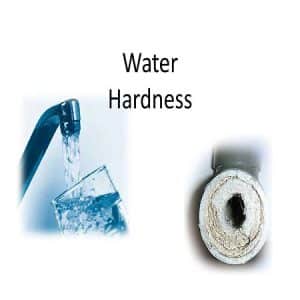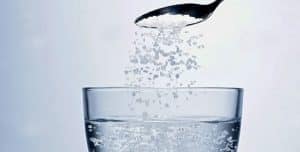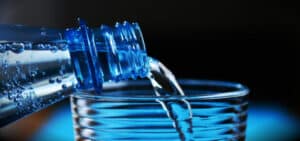Potassium carbonate is one of the main constituents of potash and refined ash or tartar salt. In the past, pearl ash was baked in a kiln to remove impurities, and white powder left in the kiln was produced as pure pearl. Potassium carbonate decomposes at high temperatures and can absorb moisture from the air. The material has a wet and watery appearance. The process of dissolving potassium carbonate in water is an exothermic process. When dissolved in water, it is converted to its constituents, potassium cation and carbonate anion, and the solution becomes alkaline. Potassium ions and carbonate are naturally occurring in nature, so it is environmentally friendly. The presence of carbonate ions increases the pH of the water, so the water containing it must be adjusted for pH before discharge into the environment. One of the uses of potassium carbonate in water is to soften and eliminate its hardening factors. In the following, we will discuss the meaning of this issue:
Is potassium carbonate soluble in water?
As we said, potassium carbonate is a mineral and white compound that is soluble in water. When dissolved in water, the water becomes alkaline.
K2CO3 + H2O -> 2KOH + CO2
Older evidence also suggests that potassium carbonate can be used as a softener in hard water to increase water efficiency. Because hard water does not have many applications in everyday life, and by removing its hardness, many applications such as washing and watering plants are added to it, which are the applications of potassium carbonate.
What is Water Hardness?
Hard water is water that contains mineral salts such as bicarbonate compounds, calcium ions, magnesium, etc. Water hardness is of two types: permanent and temporary hardness is measured mainly on the basis of the two metals magnesium and calcium. In general, water hardening factors are cations.
The most common and main salts that cause this problem are calcium and magnesium, which are found in abundance in urban water. The sum of these two compounds is called water hardness, which is also the main cause of water deposition. By removing the hardness of water, or in other words, removing calcium and magnesium, detergents have more cleaning power and their consumption is saved. On the other hand, the hardness of the water causes the clots created by detergents, soaps, shampoos, etc. to remain in the fabric of clothes as well as on the surface of the body, giving a gray or yellow appearance to white fabrics, and also reduces the shelf life of clothing.

There are currently many ways to reduce and eliminate water hardness, one of which is the use of potassium carbonate.
In cases where the water still has a non-carbonate hardness after removing the carbonate hardness, potassium carbonate K2CO3 can be used to remove calcium and magnesium ions from the water. In this way, calcium ions are converted to calcium carbonate and magnesium ions to magnesium hydroxide, both of which do not dissolve in water, but precipitate and are easily separated from the water.
Conclusion:
Therefore, it should be noted that reducing the hardness of water, which includes the removal of calcium ions, magnesium ions, and some other metal cations in the water, causes the water to soften. As a result of this process, the resulting water is more compatible with detergents and increases the life of the piping system.







5 Responses
Does potassium carbonate soften water?
Pearl ash added to hard water will soften the water.
Is potassium carbonate acidic or basic in water?
Potassium carbonate (K2CO3) is a water-soluble white salt that, when dissolved in water, forms a strongly alkaline solution.
Basic. It will bring the pH of water higher. 7+